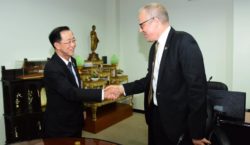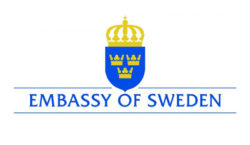On 20-21 April, RECOFTC, a regional organization for sustainable community forestry, and partners visited mangrove forest communities in Prednai and Tha Ra Nae in Trat province, Thailand to learn from their forest restoration journey. The delegation included the Ambassador of the Embassy of Sweden in Bangkok H.E. Staffan Herrström, the Ambassador of the Embassy of Switzerland in Bangkok, and representatives from the Royal Norwegian Embassy, Bangkok and the Swedish International Development Cooperation Agency.
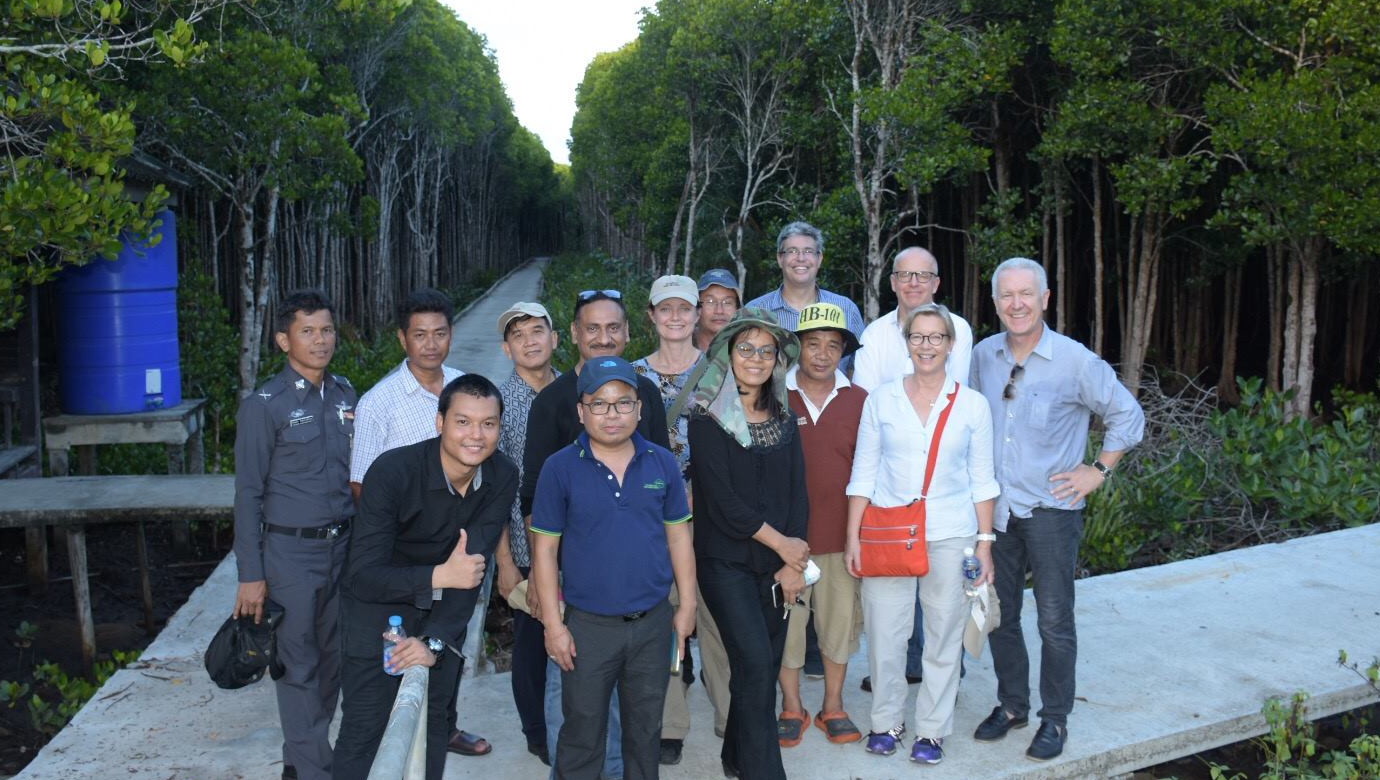
Communities living in Trat province in Thailand are restoring the mangrove forest, mobilizing for sustainable use of the natural resources available. Recoftc has a strong partnership supported by Sida through the Swedish Embassy.
“The field trip to Trat province with Recoftc was an extremely inspiring experience. First and foremost because of the people we met, their dedication to community forestry, and their ways of preserving nature and improving their livelihoods. The results are impressive. We had the opportunity to experience, hands on, the magic of the restored mangrove forests – it was just unforgettable. I was particularly happy to see how youth from the communities have become engaged. We are proud to be a partner of such a professional organization,” said Swedish Ambassador Staffan Herrström, Embassy of Sweden in Bangkok.
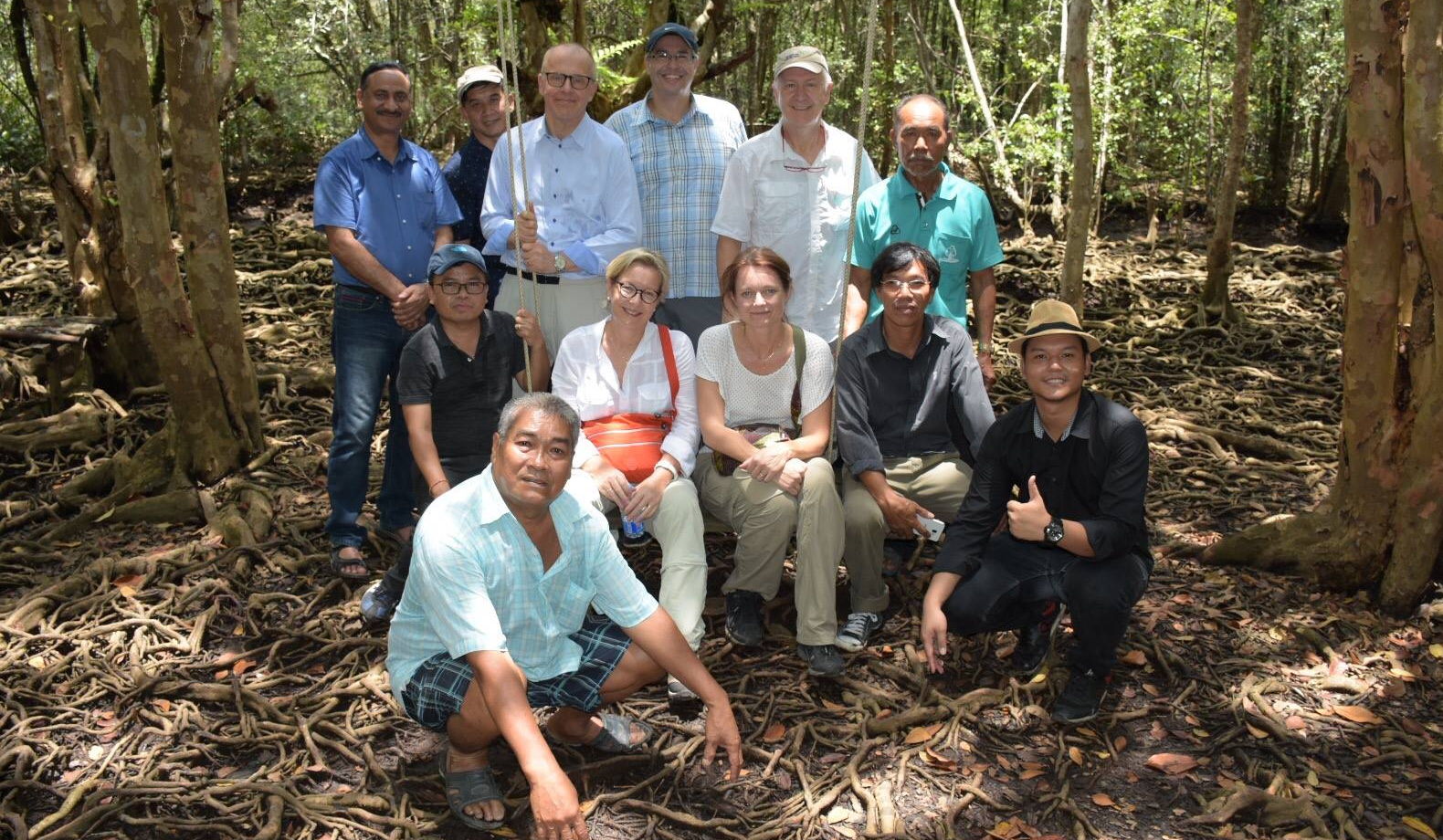
The field visit aimed to deepen understanding of the participants of the current situation of community forestry and natural resource management in Thailand, through interactions with local people in the Prednai community mangrove forest and its network. The trip also explored the impacts of Recoftc’s work with partners to enhance local community capacities for sustainable forest management.
Local community members have developed and are actively implementing a community management plan for the sustainable management of forests and natural resources, reports Recoftc. The plan is comprised of research, information dissemination, and conservation, networking with other sub-districts, and capacity building for the community. As a result, the community has improved their livelihoods and the sustainable use forests. For example, the Prednai community established a Mangrove Community Forest Fund, which was used to buy a degraded area that was formerly a shrimp farming area of about 20 hectares, and has successfully rehabilitated the mangrove ecosystems and increased mangrove forest area.
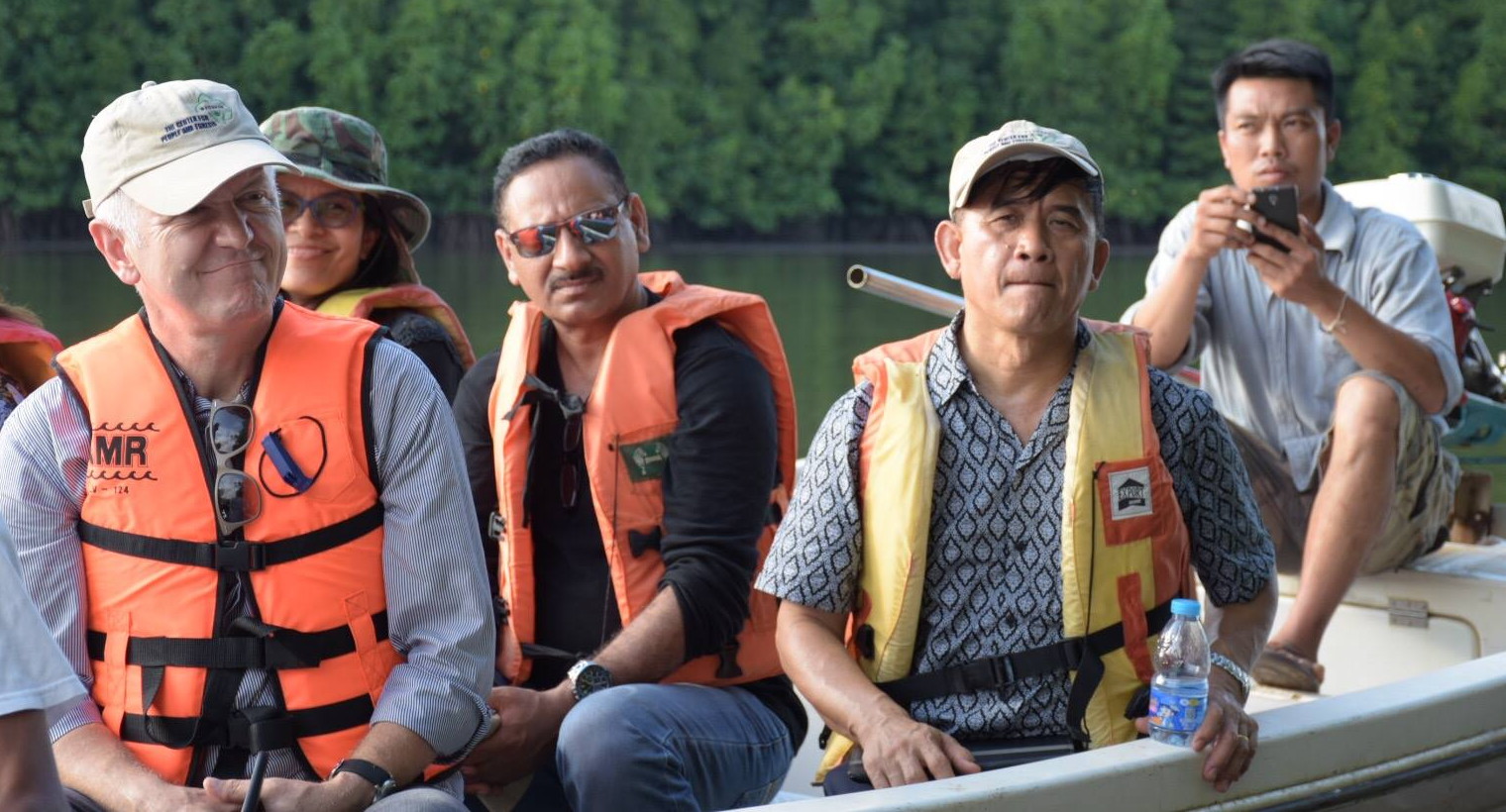
Recoftc – The Center for People and Forests – has been the primary institution for promoting community forestry in Asia and the Pacific since its inception in 1987. By building the capacity of the various stakeholders – from communities to governments to non-governmental organizations and the private sector – Recoftc has worked in partnership to improve the policies, institutions and practices of community forestry in the region.
More than 450 million people in Asia and the Pacific are dependent on forests for part of their livelihoods – for food, fuel, fodder and other forest products – as well as for environmental services such as water and microclimate regulation, biodiversity and cultural conservation. Despite many positive developments, these forests are still subject to wide-scale degradation and conversion, and are becoming fragmented within increasingly diverse and intensively used landscapes. This often creates negative impacts for local people, particularly the poor and excluded, as well as on national and global issues such as climate change.
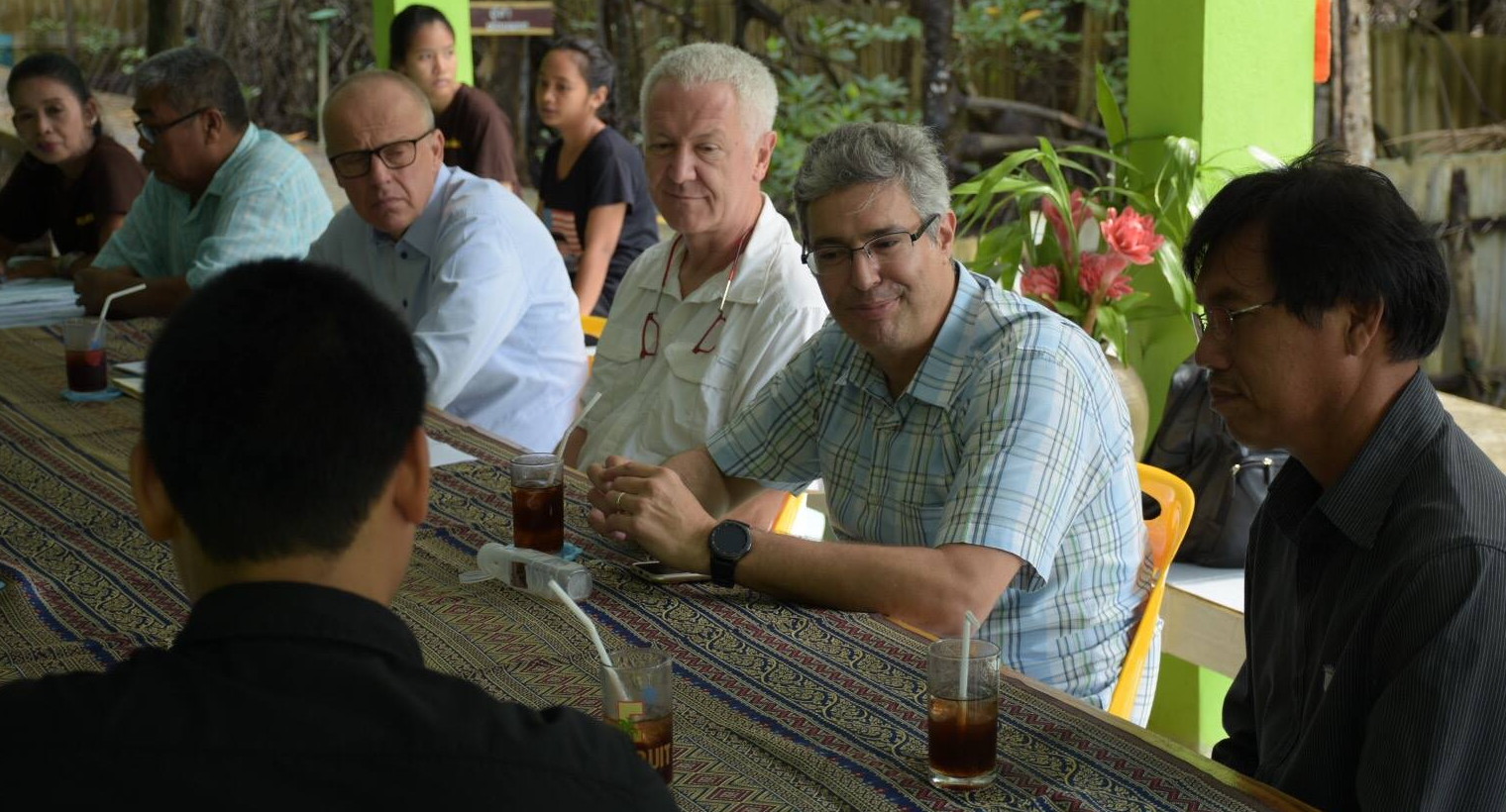
Community forestry and related community-based forest landscape management has proven to be an effective approach for reducing forest loss and degradation and improving forest conservation and restoration. It is a powerful approach for improving the rights, governance and fairer access to benefits of local people and smallholders and consequently, their livelihoods and food security. There is increasing national policy support for this approach in many forested countries in the Asia and the Pacific region, and greater interest in more sustainable forest management by national entities and international agencies.
An independent stakeholder review conducted in 2013 confirmed that Recoftc is deemed highly relevant, has a recognized niche, and is effective in contributing to the outcomes desired by national governments and development partners.
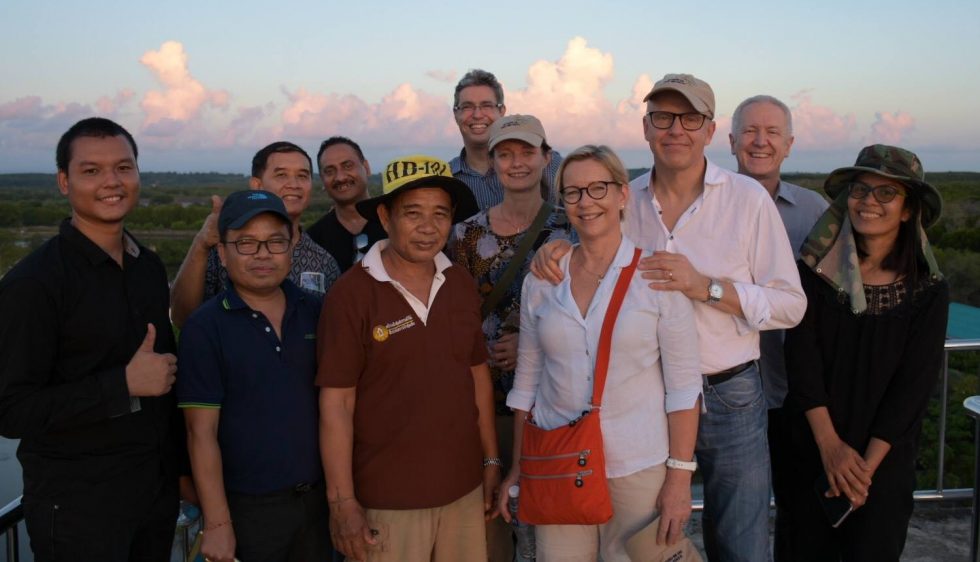
This strategic plan for 2013-2018 builds upon the gains of the previous phase and identifies clearer strategic outcomes that Recoftc hopes to achieve through partnerships during the next five years. Emerging issues such as landscape approaches, food, water and energy security and rural out-migration, and their linkages to community forestry will be explored. Recoftc will also strengthen its rights-based approach founded on the three underlying principles that strong and secure rights, good governance and fair benefits are the basis of sustainable forest management.
Source: Recoftc, Embassy of Sweden in Bangkok

